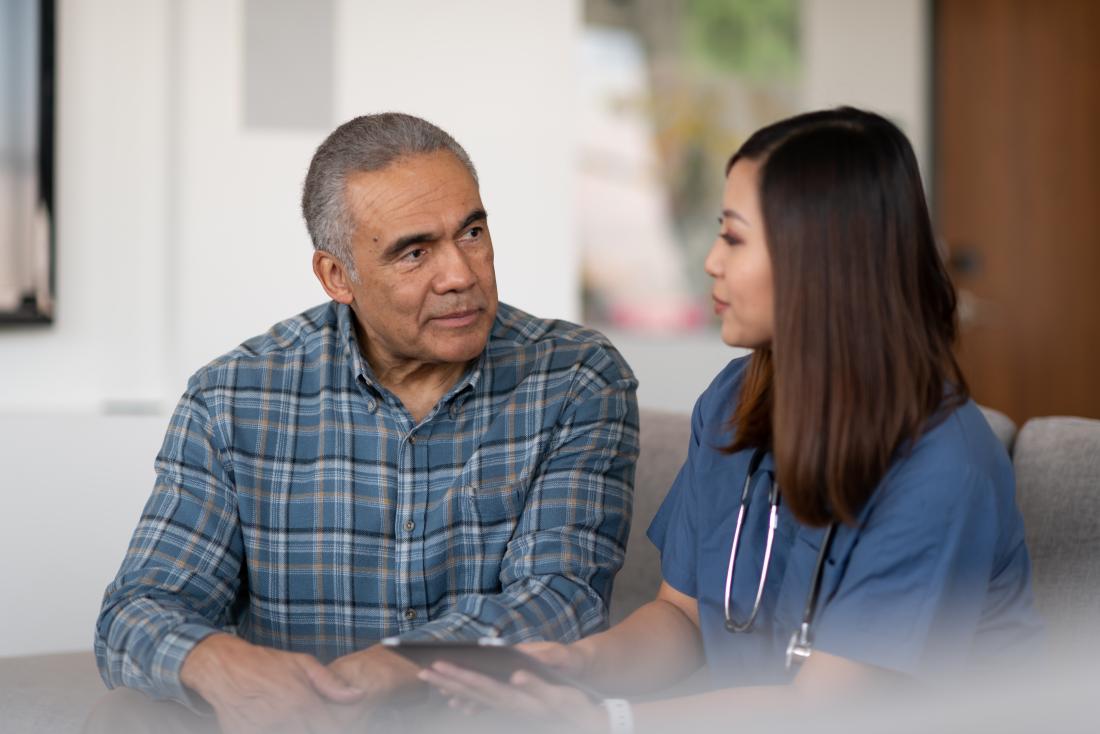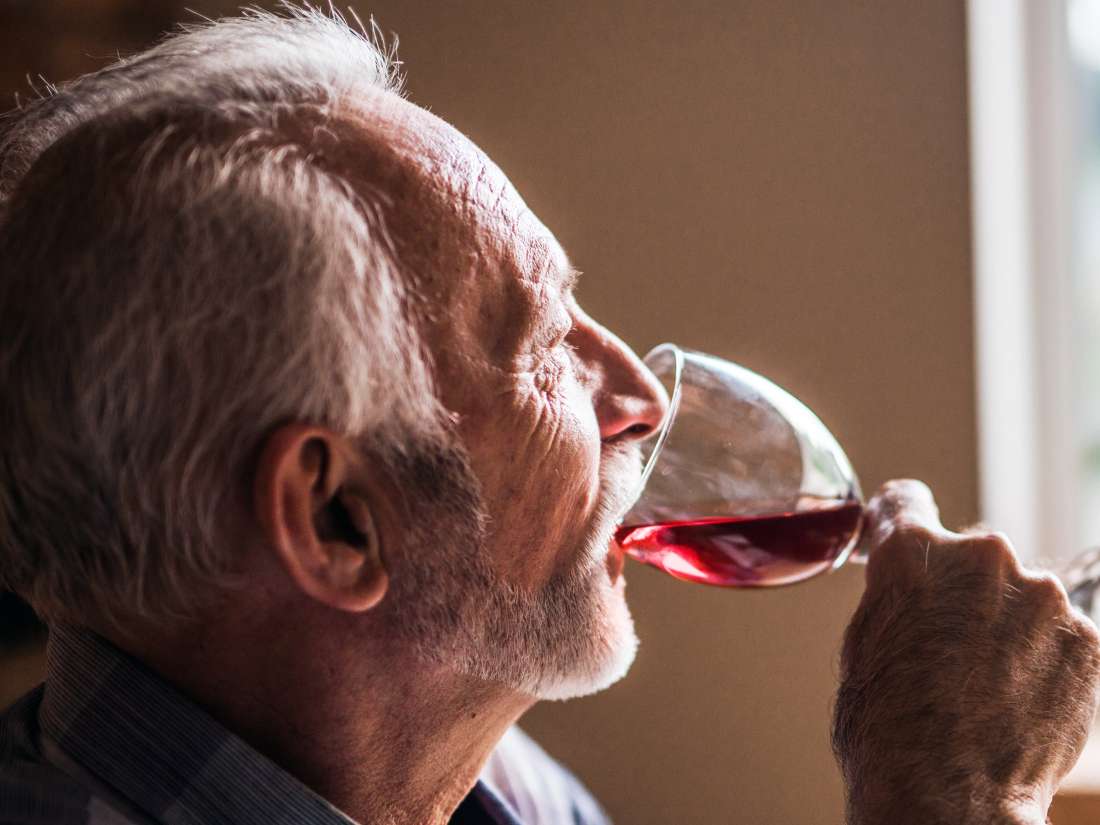For anyone prone to anxiety, it can be easy for one drink to turn into more and lead to a growing dependence on alcohol.
According to a review study that looked at anxiety and alcohol use disorders, this relationship can become a dangerous, self-perpetuating cycle.
In this article, we look at the links between alcohol and anxiety, the risks, and how to manage anxiety and alcohol in daily life.
Can alcohol cause anxiety?

Drinking heavily may have a negative impact on mental health.
Research suggests that there is a link between alcohol consumption and anxiety. Anxiety disorders and alcohol use disorder (AUD) often occur together.
This relationship is because regular, heavy drinking can interfere with neurotransmitters in the brain that are responsible for positive mental health.
According to a 2017 review that looked at 63 studies, reducing alcohol intake resulted in improvements in both depression and anxiety.
The review authors reported that reducing alcohol intake could improve people’s self-confidence, physical and mental quality of life, and social functioning.
In many cases, it is unclear whether alcohol causes anxiety or if anxiety makes a person more likely to drink alcohol.
According to some animal research, those who drink alcohol in their youth may be more prone to anxiety in adulthood, which might suggest a causal relationship.
Can alcohol make anxiety worse?
A 2017 study found that, when researchers measured anxiety clinically, levels of anxiety were higher in those with AUD than those without when they faced stress.
Anxiety and a sense of unease are common among those with an AUD. Those with AUD may suffer from alcohol withdrawal, which includes physical symptoms of anxiety, such as rapid heartbeat, nausea, and shaking.
Can alcohol help with anxiety?
Initially, drinking alcohol may help someone to relax. It can make social situations easier, and problems seem less daunting.
Initial effects of alcohol may include:
- improved mood
- reduced anxiety
- fewer inhibitions
- a boost in self-confidence
However, these positive feelings are short lived and carry risks.
The short term risks of alcohol may include:
- extreme changes in mood
- forgetfulness
- impaired vision
- lack of coordination
The long term risks of alcohol may include:
Lifestyle changes and treatment options for anxiety

Regular exercise may help relieve anxiety.
Lifestyle changes that people can implement to relieve anxiety include:
- getting enough regular sleep
- getting regular exercise
- reducing caffeine intake
- practicing relaxation techniques, such as meditation, yoga, and massage
- finding activities to occupy time and thoughts
If an individual needs more help, a doctor may be able to prescribe medications:
People may also benefit from counseling, which can take the form of cognitive behavioral therapy (CBT) or interpersonal therapy, among others.
Lifestyle changes and treatment options for alcohol use disorder
Here are some lifestyle changes that people can try:
- identifying possible triggers
- avoiding alcohol when upset or stressed
- finding enjoyable exercise
- talking to friends and family
- removing alcohol from the home or workplace
- eating a healthful diet
- attending support groups, for example, Alcoholics Anonymous (AA)
- attend therapy, for example, CBT
- going to an alcohol rehabilitation center
- learning a relaxation technique
Also, doctors can prescribe medication for AUD, including:
- disulfiram (Antabuse)
- naltrexone (Vivitrol, Revia, and Naltrel)
- acamprosate (Campral)
Nowadays, the internet can also offer tools for keeping track of drinking habits, setting goals, and providing relapse-prevention techniques.
Mobile applications are available, such as the Addiction-Comprehensive Health Enhancement Support System (A-CHESS).
When to see a doctor

A person should speak to their doctor if they notice an increase in their heart rate.
Alcohol and anxiety often go together, and it is important to see a doctor for any of the symptoms listed below:
- feeling nervous or irritable
- having a sense of imminent danger or panic
- noticing an increase in heart rate
- hyperventilating or sweating or shaking
- feeling constantly tired
- experiencing an erratic sleeping pattern
- being unable to concentrate
Signs and symptoms of AUD include:
- experiencing a strong urge, or need, to drink
- experiencing blackouts
- drinking more to experience the desired effect
- alcohol interfering with work or home life
- skipping activities that were enjoyable before in order to drink
- being in dangerous situations under the influence of alcohol
- experiencing withdrawal symptoms, such as trembling, difficulty sleeping, anxiety, depression, sweating, nausea, or hallucinations
Outlook
People can usually manage all types of anxiety successfully by using a combination of lifestyle changes, medications, and therapy rather than alcohol.
The outlook for those who have AUD is more complicated. AUD is a chronic condition that includes a variety of effects on the mind and body.
According to AA, 27% of approximately 6,000 members were sober for less than 1 year, and 22% were sober for 20 plus years. Also, success rates can be hard to document due to relapses and treatment be challenging.
If a person is worried about alcohol use or anxiety, they can speak to a doctor to find out the best ways to solve these issues.
